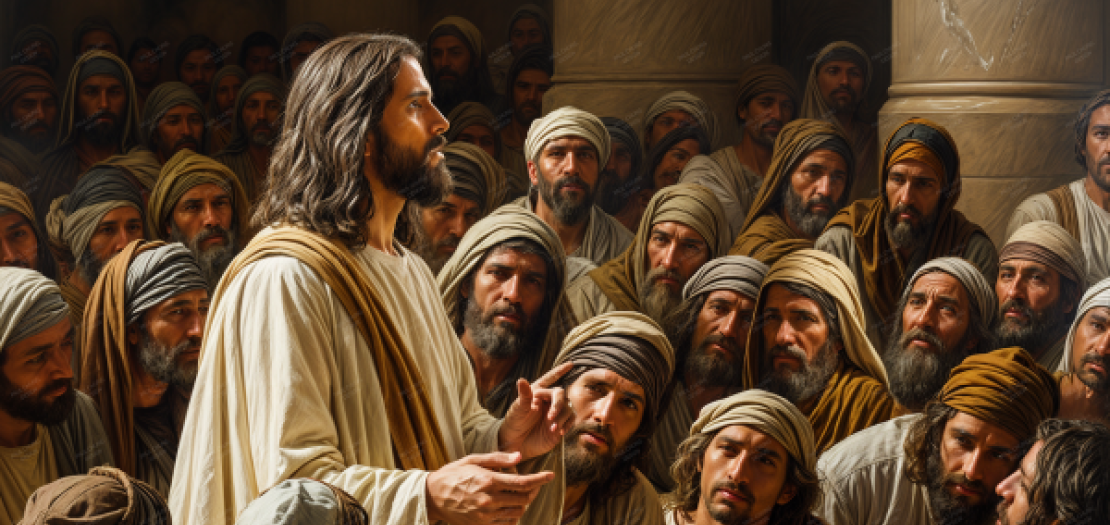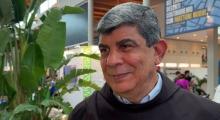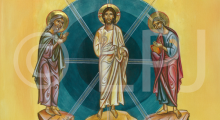Issued by the Catholic Center for Studies and Media - Jordan. Editor-in-chief Fr. Rif'at Bader - موقع أبونا abouna.org

Following is the text of the meditation by Cardinal Pierbattista Pizzaballa, Latin Patriarch of Jerusalem, on the second Sunday of ordinary time C, dated January 26, 2025:
Today’s Gospel passage (Luke 1:1-4; 4:14-21) comes from two different chapters of Luke’s Gospel: the first verses are taken from the first chapter and tell of the beginning of the Gospel. The next part is taken from the fourth chapter and tells of Jesus' first public appearance, immediately after the temptations in the desert.
These two passages are both a beginning: the beginning of the Gospel and the beginning of Jesus’ mission. And in both of these passages, the word fulfillment appears again.
It is the word that frames both pericopes: the evangelist says that many told of the events that were fulfilled in their midst, (Luke 1:1), and Jesus says that the scripture he had just proclaimed was fulfilled in the synagogue of Nazareth. (Luke 4:21)
The evangelist does not simply speak of events that have taken place, but emphasizes and specifies that they have been fulfilled. He is saying that it is not simply something that has happened, perhaps something new or beautiful, but that everything that has happened is a fulfillment. In other words, something that has reached its fullness, its purpose, its goal.
Jesus enters the synagogue and does not simply begin to proclaim that the kingdom of God is at hand, as he will do in other parts of Galilee. Instead, he reads a Word and proclaims that this Word has been fulfilled. Therefore, the kingdom of God is at hand.
From all this we can deduce a first element, namely that there is a fulfillment already at the beginning of Jesus ministry.
That our starting point, the beginning of life, is something that has been fulfilled, that a promise is kept, a covenant is fulfilled, a faithfulness is honored. At the beginning of our faith, at the beginning of our life, at the beginning of our relationship with the Lord, there is a gift that has been long prepared and finally irrevocably given. Fulfilled.
Jesus reveals what this gift is in the verses from the prophet Isaiah, which he was to read in the synagogue of his hometown: a proclamation of peace, freedom, salvation, life (“The Spirit of the Lord is upon me, because he has anointed me to bring good news to the poor. He has sent me to proclaim release to the captives and recovery of sight to the blind, to let the oppressed go free” - Luke 4,18), the proclamation that God is working to build this newness, this new world.
Well, this new world is here now, it is beginning, and it is beginning in a simple synagogue in an unknown town on the outskirts of society. We dwell now on the gestures and words that Jesus uses because these gestures and words bring us closer to the meaning of fulfillment.
The evangelist Luke reports them very precisely (Luke 4:16-20): Jesus stands up, receives the scroll of the prophet Isaiah, opens it, finds the passage with the verses that speak of the coming of the kingdom of God, reads from the scroll, rolls it up again, hands it to the servant and finally sits down again. These are evocative gestures.
Jesus receives this history, in obedience to the Father; then He opens it to enter into it, to be part of it. He enters into a history that walks toward Him, the history of waiting for the Messiah, of waiting for a salvation that is free, that is for all. Jesus then reads it, interprets the law, that is, he makes it his own, reveals its meaning. And finally, he rewinds the scroll, because the time of waiting for that Word is over, and now everything written in the scroll is fulfilled: you can see it and touch it, in his own person.
He is the redemption, He is the sight, He is the good news.
And then the words: as soon as he sits down, Jesus does not comment on the passage as the rabbis and teachers did. He does not simply explain it so that everyone can understand it. Rather, he says that that Word has been fulfilled: “Today this scripture has been fulfilled in your hearing.” (Luke 4,21)
And when it has been fulfilled, we are no longer in the time of waiting, of uncertainty, but in the today of redemption.
Today the Lord wants to set us free, today he wants to give us back our sight, today he wants to proclaim his life-giving presence.
It is not just a confirmation that the Lord will surely help us. The time has come for the good wine that renews the wedding feast. (cf. John 2:1-11)
+ Pierbattista







